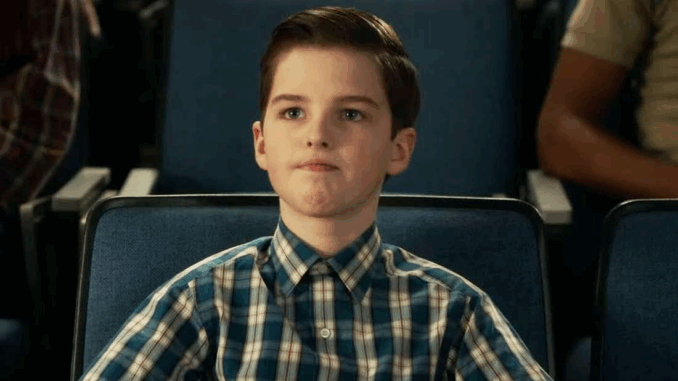
In The Big Bang Theory, Sheldon Cooper occasionally referenced his father, George Cooper Sr., with a mix of embarrassment and detachment. He was often painted as a loud, beer-loving Texan who cheated on his wife and died when Sheldon was young. Viewers were left with the image of a flawed man who never quite measured up to the brilliance of his son.
But Young Sheldon had a different story to tell — one that turned that footnote of a father into one of the most emotionally complex characters on modern network television.
A Character Rewritten, But Not Sanitized
Lance Barber’s portrayal of George Sr. was grounded, human, and deeply moving. The writers didn’t whitewash his flaws — George was still stubborn, occasionally insensitive, and prone to losing his temper. But unlike the caricature implied in The Big Bang Theory, Young Sheldon made him real.
He was a high school football coach struggling to provide for a unique family. He was a husband trying to keep his marriage intact while watching his children grow up faster than he could keep up. And most importantly, he was a father who didn’t always understand his son, but loved him unconditionally.
Sheldon’s Intellectual Distance vs. Emotional Need
From the start, George Sr. didn’t know how to “handle” Sheldon’s genius. Who would? The gulf between them was wide: George believed in hard work and sports; Sheldon lived in quantum theories and string calculations.
But while Mary tried to shield Sheldon with religion and rules, George offered something subtler — space. He didn’t always engage with Sheldon’s science, but he protected his son’s right to be different.
In moments of quiet bonding — a car ride, a shared look, or an awkward attempt at encouragement — George Sr. showed that love isn’t always loud. Sometimes, it’s just presence.
The Power of Small Moments
Some of the most memorable scenes in Young Sheldon were between father and son — not because they were dramatic, but because they were real.
-
In one episode, George Sr. drove Sheldon miles just to sit in a lecture hall at a college he wouldn’t attend for years.
-
In another, he sat silently outside Sheldon’s room after a meltdown, not offering advice but simply being there.
-
And in a heart-wrenching Season 7 episode, George told Sheldon, “I may not get everything about you, but I’m proud of you.”
These scenes reshaped everything audiences thought they knew about the man.
Struggles with Marriage, Work, and Mental Health

George’s relationship with Mary was often fraught. Their arguments weren’t manufactured — they were the result of real pressures: money problems, parenting differences, emotional distance.
He wasn’t perfect. There were hints at infidelity. There were outbursts. He sometimes drank too much. But Young Sheldon gave context to his choices. He was a man under pressure, trying to support a family that didn’t fit into small-town Texas norms.
That depth allowed viewers to empathize with him — even when he failed.
The Death That Changed Everything
The death of George Cooper Sr. was long expected by fans who knew The Big Bang Theory lore. But when it finally happened in Young Sheldon, it wasn’t just sad — it was devastating.
The show handled it with restraint. There was no big monologue. No cinematic music swell. Just an absence that echoed in every corner of the Cooper house.
Sheldon’s grief was muted but permanent. Missy spiraled. Mary became more devout. And viewers finally understood why adult Sheldon spoke of his father with distance: the pain was too deep to articulate.
Lance Barber’s Quiet Brilliance
Lance Barber’s performance as George Sr. deserves recognition as one of the most grounded, underappreciated on television. He navigated the tightrope between stern and tender, flawed and loving. He made viewers feel for a man who once seemed beyond redemption.
His chemistry with Iain Armitage was particularly remarkable — creating a father-son dynamic that was as awkward as it was heartfelt.
A Character Legacy Rewritten
By the end of Young Sheldon, George Sr. wasn’t just a background figure — he was one of the most pivotal characters in the series. He was the reason Sheldon had any emotional foundation at all.
When adult Sheldon (narrated by Jim Parsons) reflected on his father’s death, he didn’t speak of physics or genius. He spoke of loss. Of love. Of a man who tried his best.
And that changed everything.
Final Thoughts
Young Sheldon didn’t just give us a prequel. It gave us a second chance to understand the people behind the punchlines. George Cooper Sr. was no longer the bumbling dad Sheldon described in The Big Bang Theory — he was a man with hopes, flaws, and a heart far bigger than his words.
In a show about a boy genius, it was the ordinary father who quietly stole our hearts.
